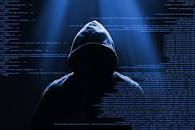The dark web is a part of the internet that is not indexed or easily accessible through traditional search engines like Google or Bing. It is a subset of the deep web, which includes all web pages that are not indexed by search engines. The dark web is intentionally hidden and requires specialized software, such as the Tor network, to access it anonymously.
Characteristics of the Dark Web:
Anonymity: The dark web provides a high level of anonymity to its users. It is often used by individuals who want to protect their identity and privacy.
Encrypted Communication: The data transmitted on the dark web is encrypted, making it difficult for third parties to monitor or intercept communications.
Hidden Services: Websites on the dark web use ".onion" domain extensions and are only accessible through the Tor network.
Illicit Activities: While the dark web has legitimate uses, it has also gained a reputation for hosting illegal activities, such as the sale of drugs, weapons, stolen data, hacking tools, and other illicit goods and services.
Cybersecurity Risks: Browsing the dark web exposes users to potential cybersecurity risks, as malicious actors may attempt to exploit vulnerabilities or distribute malware.
It is important to note that the dark web is not synonymous with criminality. While it does host illegal activities, it also serves as a platform for activists, journalists, and individuals living under oppressive regimes to communicate and share information securely. However, due to its association with illicit activities, the dark web has drawn significant attention from law enforcement agencies and cybersecurity experts.
It is crucial to exercise caution and use extra security measures if you choose to explore the dark web, as it can expose you to potential legal and security risks. As such, it is generally advised that individuals avoid accessing the dark web unless they have a specific, legitimate reason and are well-informed about the potential risks involved.





0 মন্তব্যসমূহ